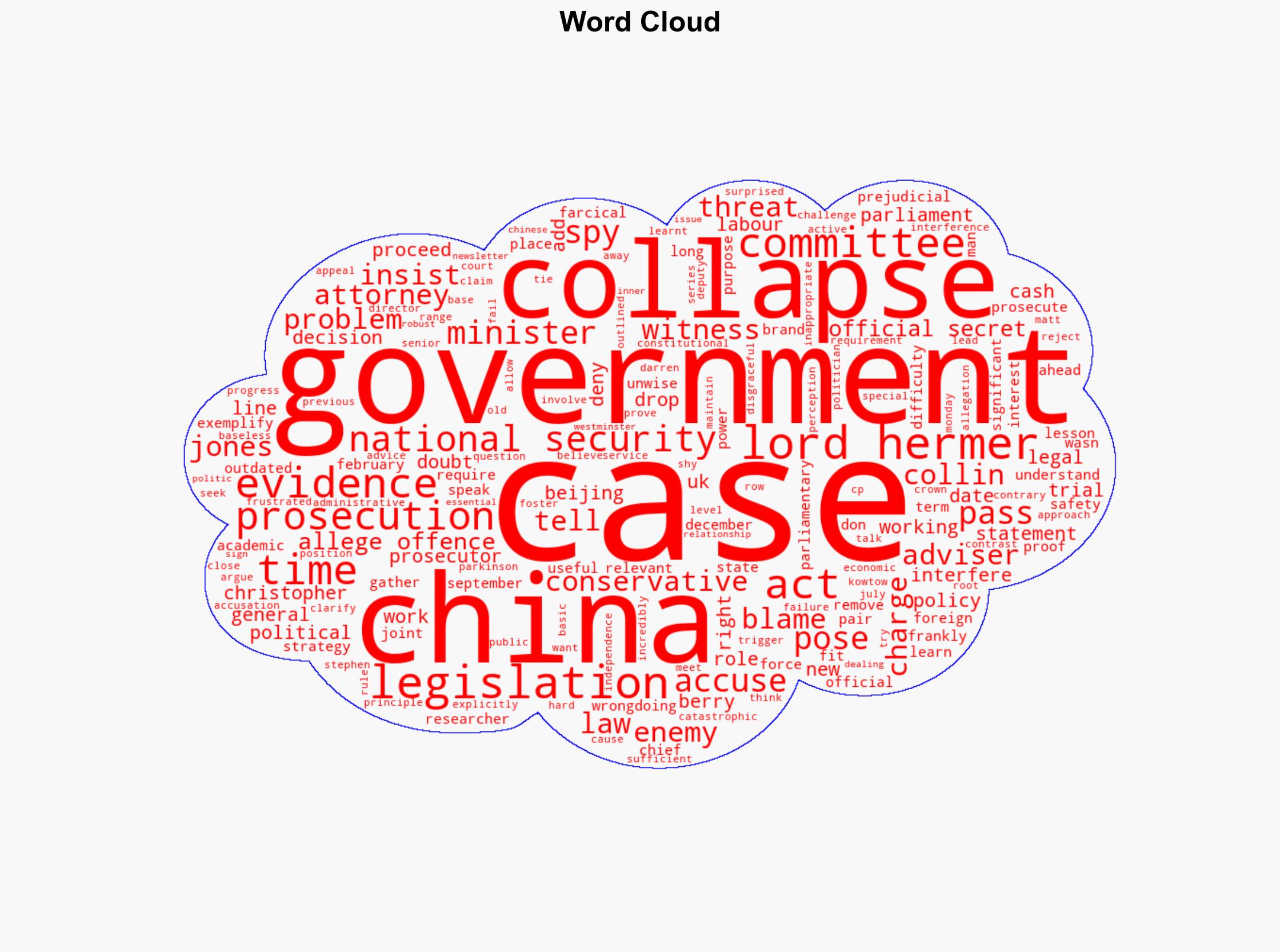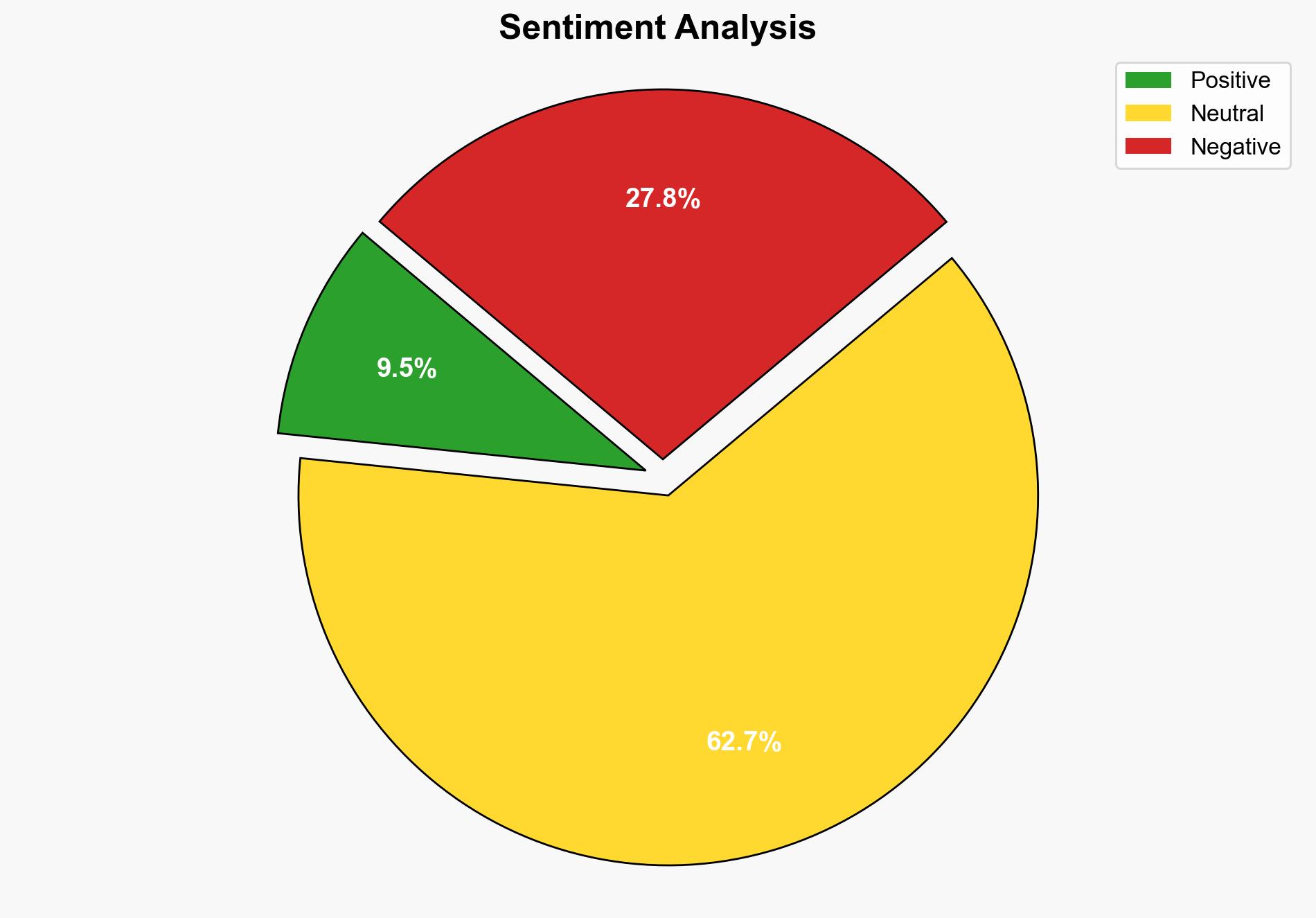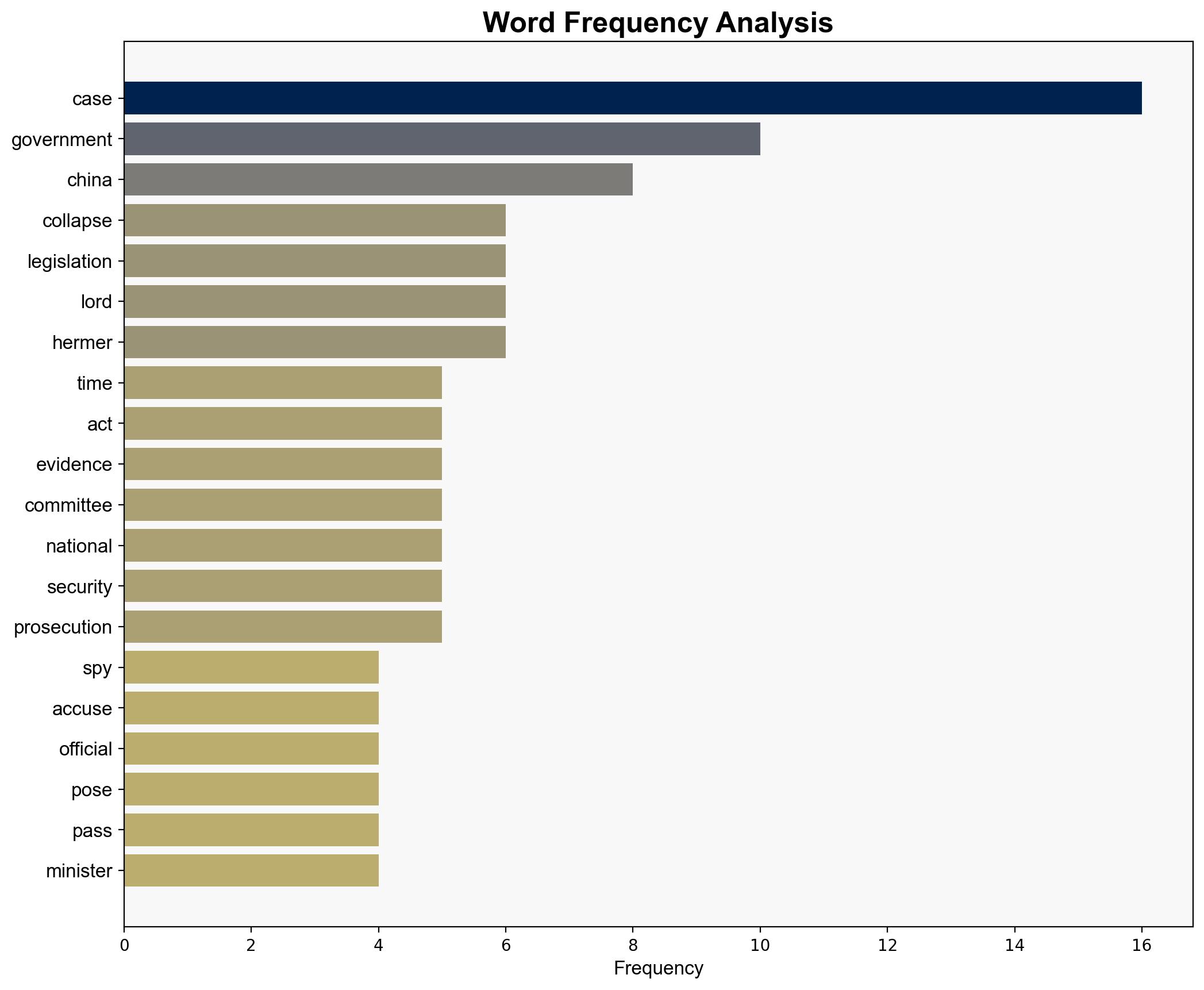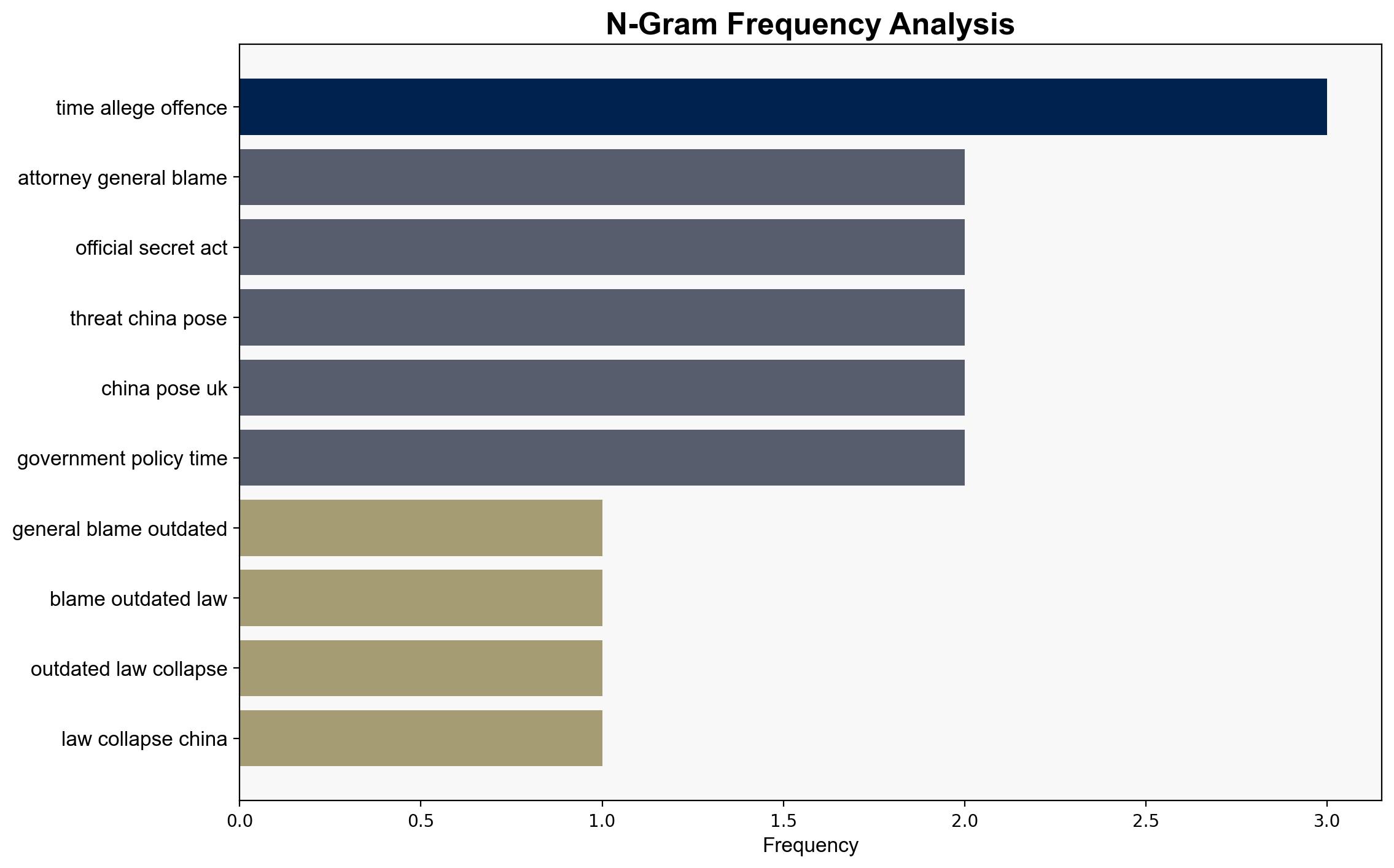Attorney general blames outdated law for collapse of China spy case – BBC News
Published on: 2025-10-29
Intelligence Report: Attorney general blames outdated law for collapse of China spy case – BBC News
1. BLUF (Bottom Line Up Front)
The collapse of the China spy case is primarily attributed to outdated legislation, specifically the Official Secrets Act, which was not equipped to handle modern espionage challenges. The most supported hypothesis is that legislative inadequacies, rather than political interference, led to the case’s failure. Confidence level: Moderate. Recommended action: Expedite the implementation of updated national security laws and enhance legal frameworks to address contemporary espionage threats.
2. Competing Hypotheses
Hypothesis 1: The collapse of the spy case was due to outdated legislation that failed to provide a robust legal framework for prosecuting espionage effectively.
Hypothesis 2: Political interference and strategic interests in maintaining economic ties with China influenced the decision to drop the case.
Using the Analysis of Competing Hypotheses (ACH) 2.0, Hypothesis 1 is better supported. The evidence indicates that the Official Secrets Act was insufficient to meet the prosecution’s needs, as highlighted by multiple legal advisors. In contrast, accusations of political interference lack substantive evidence and are denied by key figures involved.
3. Key Assumptions and Red Flags
Assumptions:
– The legal framework is assumed to be the primary factor in the case’s collapse.
– Political motivations are presumed secondary without direct evidence.
Red Flags:
– Lack of transparency in the decision-making process could indicate hidden agendas.
– The timing of the case collapse amidst political tensions with China raises questions.
4. Implications and Strategic Risks
The failure to prosecute may embolden foreign espionage activities, posing long-term national security risks. The perception of legal inadequacy could undermine public confidence in the government’s ability to protect national interests. Additionally, unresolved tensions with China might escalate, affecting bilateral relations and economic partnerships.
5. Recommendations and Outlook
- Accelerate legislative reforms to modernize espionage laws, ensuring they are equipped to handle current threats.
- Enhance transparency in legal proceedings to rebuild public trust.
- Best Case: Successful implementation of new laws deters future espionage attempts.
- Worst Case: Continued legal inadequacies lead to increased foreign intelligence activities.
- Most Likely: Gradual improvement in legal frameworks with ongoing geopolitical tensions.
6. Key Individuals and Entities
– Christopher Cash
– Christopher Berry
– Lord Hermer
– Stephen Parkinson
– Matt Collin
– Darren Jones
7. Thematic Tags
national security threats, cybersecurity, counter-terrorism, regional focus




